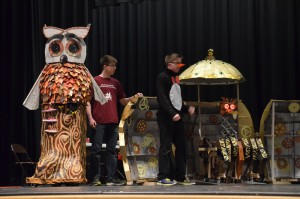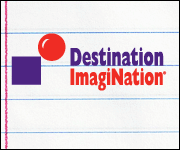Sometimes, the signs of change are both subtle and obvious at the same time. Clearly, change came for everyone and especially business with the Internet. Social media created connected consumers that are literally changing how business needs to be done. There are a few more waves that will change technology and how we interact with information, but none more subtle, and obvious as collaboration.
Doing something together is not collaborating, but even lifting something with several people is simple collaboration. As with many things, the devil is in the details. With collaboration, organizational silos, competing ideas and goals start to define the outcome rather than leveraging everyone’s hidden skill sets for a common goal. Fortunately for businesses, last year there were over 200,000 students in over 30 countries were practicing collaboration as it applies to solving challenges based in science, technology, engineering, the arts and math – not just STEM, but STEAM. Last May, I had the privilege to volunteer in leading a team of photographers in capturing what the top teams from 17 countries did – not just in competition, but the extracurricular events at Destination Imagination Global Finals.
The obvious observation is that every business needs to leverage what these kids already know: Collaboration yields results far beyond what individual team members restricted to “their specialty” can accomplish.
The expectation of collaboration brought a lesson that these teams learned back when they first formed in the fall: Everyone is different and everyone brings different and often hidden talents to the table. Teams that succeed figured this out. And that the loudest or most respected person is not always right. Volunteer “Team Managers” who facilitate the team’s solutions cannot suggest what to do, but can make sure there are guidelines to ensure all ideas have an equal chance of survival. Ultimately, it’s up to the team members, the kids, to identify each other’s skills, hidden and obvious, and leverage them. The teams that succeed are closer, stay together longer and support each other: Even after they all go their separate ways, there is a bond that remains.
Now would be a good time to tell you that these collaborators are students that range from second grade through college. They are responsible for every aspect of the open-ended challenge. Not just researching it, creating it and constructing it, but managing costs and time. Yes, there are fourth grade project managers that will knock your socks off. Way off.
Some companies are using a variety of platforms to collaborate with their customers – and create a major disruption in another business segment. For example, Airbnb isn’t a hotel company, but by empowering people to rent out their spare rooms or apartments creates a disruption in the hospitality marketplace. Uber isn’t in the taxi, rental car or car buying markets, but the availability of a ride when you need it is disrupting all these markets.
As these kids, and there are 1.5 million Destination Imagination alumni in the marketplace today, what can happen for – or TO – traditional businesses?
Destination Imagination is a non-profit organization (http://www.DestinationImagination.org) with affiliates in 30 countries, including all U.S. states and Canadian provinces. Teams will start forming in the August to October time frame through many schools and community organizations.


